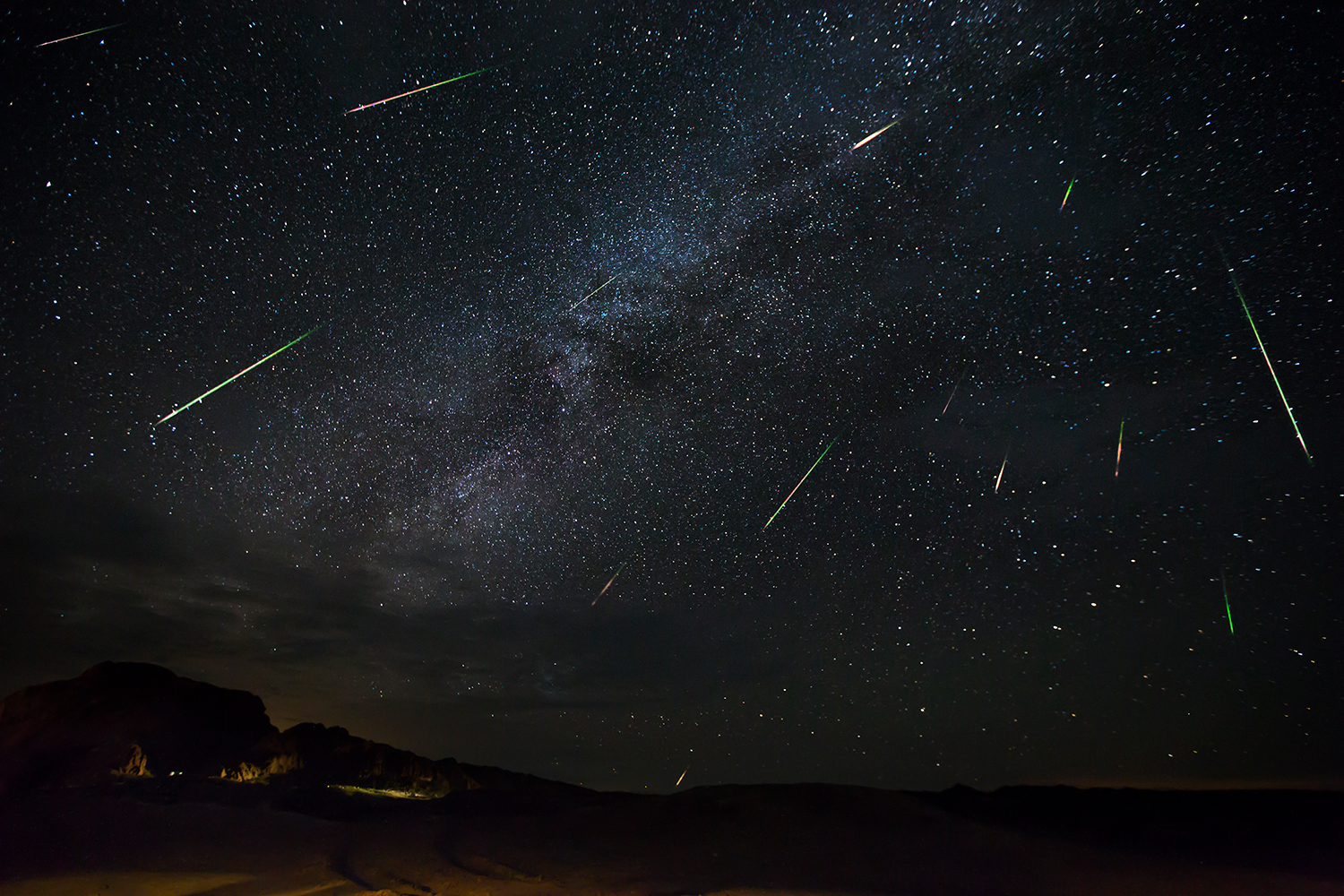
Turn your eyes to the skies the next few nights to catch a glimpse of the beautiful Orionid meteor shower. The annual shower will begin tonight, October 18, and continue for several days, peaking between October 20 and 22.
The meteors that make up the shower are the remnants of one of the most famous astronomical objects, Halley’s Comet. The comet has been observed throughout history, perhaps as early as in the Ancient Greek era, but its appearance every 75 years was first recorded in 1705 by Edmond Halley. When the comet passed by Earth most recently, in 1986, it left behind a trail of debris. It is this debris that falls into the Earth’s atmosphere and creates the meteor shower, which occurs around late October each year.
In order to get the best view of the meteor shower, you’ll need cloudless skies and low levels of light pollution. You can check the amount of light pollution in your area using DarkSiteFinder and check the weather forecast using the widget below:
You might need to get out of the city to view the event properly, as most urban environments have a background glow that blocks the light from the meteors. However, if you’re trying to view the shower, it’s best not to use binoculars or telescopes. Instead, try lying flat on the ground and looking up, viewing as much of the sky as is possible.
The best time to see the shower is after midnight, and you should look toward the constellation of Orion (the Hunter). The shower is named the Orionid Shower because it appears to originate from this constellation, though actually its true origin is much closer than these stars. By looking in this direction, you’ll have the best chance of viewing the event as it happens. If you can’t find Orion, don’t worry, as the meteors will appear to streak out in all directions across the sky.
There is an issue with the moon that may impede viewing this year. The moon will be in its last quarter phase, and its light may block some of the meteors. Brighter meteors should be visible even through the moonlight.



